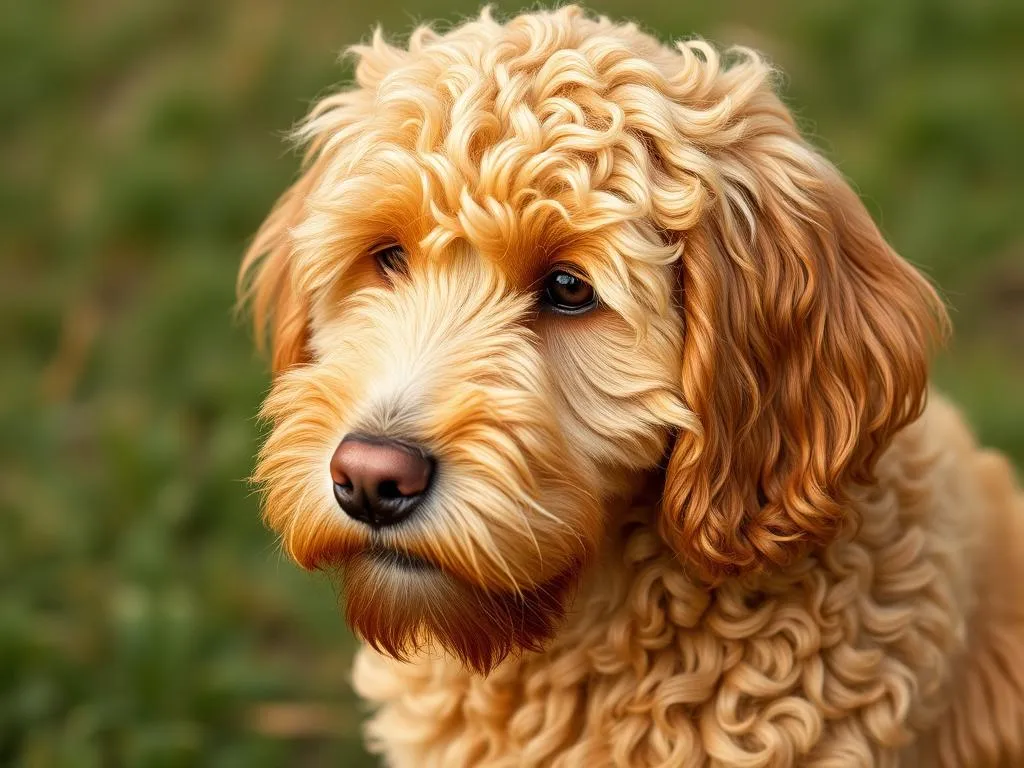
Dog breeds play a significant role in our lives, influencing everything from companionship to service roles. Among the various breeds, designer breeds have gained immense popularity, combining traits from two purebred parents to create unique and appealing dogs. One such designer breed is the Apricot Labradoodle, a delightful mix of the Labrador Retriever and the Poodle. This breed stands out not only for its charming appearance but also for its friendly temperament and intelligence, making it a favorite among dog lovers.
Understanding Dog Breeds
What is a Dog Breed?
A dog breed is a specific group of domestic dogs with distinct characteristics, including physical traits and behavioral tendencies. These characteristics are crucial for potential dog owners as they help determine the suitability of a breed for their lifestyle. For instance, some breeds may require more exercise or have specific grooming needs, while others may be more family-oriented or suited for companionship.
The Evolution of Dog Breeds
The evolution of dog breeds dates back thousands of years, with early domestication linked to hunting, herding, and protection. Selective breeding has shaped the physical and behavioral traits we see in dogs today. Over time, breeds have been developed to fulfill specific roles, leading to the diverse array of dog breeds we now have, including the Labradoodle, which was bred for a unique purpose: to combine the best traits of its parent breeds.
The Labradoodle: A Designer Breed
Origin and History
The Labradoodle originated in the late 1980s when Australian breeder Wally Conron aimed to create a hypoallergenic service dog. By crossing a Labrador Retriever with a Standard Poodle, Conron hoped to combine the loving and friendly nature of the Labrador with the intelligence and low-shedding coat of the Poodle. The Labradoodle quickly gained popularity, not just as a service dog but also as a beloved family pet.
Characteristics of Labradoodles
Labradoodles vary widely in size, coat type, and color, largely influenced by the Poodle parent. They can be standard, medium, or miniature, and their coats can range from wavy to curly. Common colors include chocolate, cream, black, and the increasingly popular apricot. Temperamentally, Labradoodles are known for their friendly and outgoing nature, making them excellent companions for families and individuals alike. Their intelligence makes them highly trainable, and they thrive on positive reinforcement and social interaction.
The Apricot Labradoodle
Color and Coat
The Apricot Labradoodle is distinguished by its beautiful apricot color, which can vary in shade from light to darker tones. This color is a result of the genetic makeup inherited from the Poodle parent. The coat can come in different types: fleece (soft and wavy), wool (curly and dense), and hair (straight and more shedding). Each coat type requires different grooming techniques, making it essential for owners to understand their dog’s specific needs.
Size Variations
Labradoodles are available in three distinct sizes: standard, medium, and miniature. The size of an Apricot Labradoodle can vary based on the size of its Poodle parent. Standard Labradoodles typically weigh between 50 to 65 pounds, while mediums range from 30 to 45 pounds, and miniature Labradoodles usually weigh around 15 to 25 pounds. Factors such as genetics and nutrition can also influence the final size of the dog.
Temperament and Behavior
Apricot Labradoodles share a generally friendly and sociable temperament common to all Labradoodles. They are typically playful, affectionate, and eager to please, making them suitable for families with children and other pets. While color can sometimes influence behavior, there is no significant difference in temperament between the apricot variety and other colors. Their intelligence and sociability make them adaptable to different environments and lifestyles.
Health Considerations
Common Health Issues
While Labradoodles are generally healthy, they can be prone to certain genetic health issues inherited from their parent breeds. Common concerns include hip dysplasia, elbow dysplasia, and certain eye conditions. Additionally, some studies suggest that specific coat colors, including apricot, may be associated with certain conditions, such as skin allergies or sensitivities. Regular veterinary visits and awareness of potential health issues are crucial for maintaining their health.
Preventive Care and Maintenance
Preventive care is vital for ensuring the well-being of an Apricot Labradoodle. Regular veterinary check-ups, vaccinations, and parasite control are essential for keeping your dog healthy. A balanced diet tailored to your dog’s age, size, and activity level will promote optimal health. Exercise is also critical; Labradoodles are active dogs and require daily physical activity to maintain their mental and physical health.
Training and Socialization
Early Training Tips
The importance of early training for Apricot Labradoodles cannot be overstated. Starting training at a young age helps to establish good behavior patterns and strengthens the bond between dog and owner. Positive reinforcement methods, such as praise and treats, work best with Labradoodles due to their eager-to-please nature. Basic commands, house training, and leash manners should be prioritized in the early stages of development.
Socialization Needs
Socialization is crucial for Labradoodles to develop into well-rounded dogs. Exposing them to various people, environments, and other animals can help reduce fear and anxiety in new situations. Puppy classes, playdates, and outings to dog-friendly parks are excellent ways to promote socialization. A well-socialized Apricot Labradoodle will be more confident and adaptable in various situations, making for a more enjoyable pet.
Grooming and Care
Grooming Requirements
Grooming is an essential part of caring for an Apricot Labradoodle, particularly due to their unique coat types. Depending on the coat type, grooming frequency can range from every few weeks to every few months. Regular brushing is vital to prevent matting and tangling, especially for curly or wavy coats. Professional grooming every 6 to 8 weeks is often recommended to maintain a healthy coat.
Daily Care Needs
Daily care routines for an Apricot Labradoodle should include regular exercise, mental stimulation, and playtime. These dogs thrive in active environments and require at least an hour of exercise each day. Engaging toys, obedience training, and interactive games can help meet their mental stimulation needs. Additionally, basic care such as dental hygiene, nail trimming, and ear cleaning should be incorporated into their daily routine to ensure overall health and well-being.
Living with an Apricot Labradoodle
Ideal Living Conditions
Apricot Labradoodles adapt well to various living situations, whether in an apartment or a house with a yard. However, they do best in homes where they have access to outdoor space for exercise and play. Regular walks, trips to the park, and opportunities to run and play are crucial for their happiness. Importantly, they thrive on companionship and should not be left alone for extended periods.
Compatibility with Families
One of the most appealing aspects of the Apricot Labradoodle is its compatibility with families. They are known for their gentle nature and patience with children. Their playful demeanor makes them great playmates, and their intelligence allows them to learn commands and tricks quickly. Additionally, Labradoodles generally get along well with other pets, making them a wonderful addition to multi-pet households.
Conclusion
In summary, the Apricot Labradoodle is a delightful breed that combines the best traits of its parent breeds. With their friendly disposition, intelligence, and adaptability, they make excellent companions for families and individuals alike. Understanding the unique characteristics, health considerations, and care requirements of this breed is essential for potential owners. Choosing an Apricot Labradoodle means inviting a loving and playful friend into your life, one that will require care, attention, and affection in return.
By considering responsible breeding practices and the importance of adoption, you can contribute to the well-being of dogs in need. The joy and companionship provided by an Apricot Labradoodle make it a rewarding choice for any dog lover.









